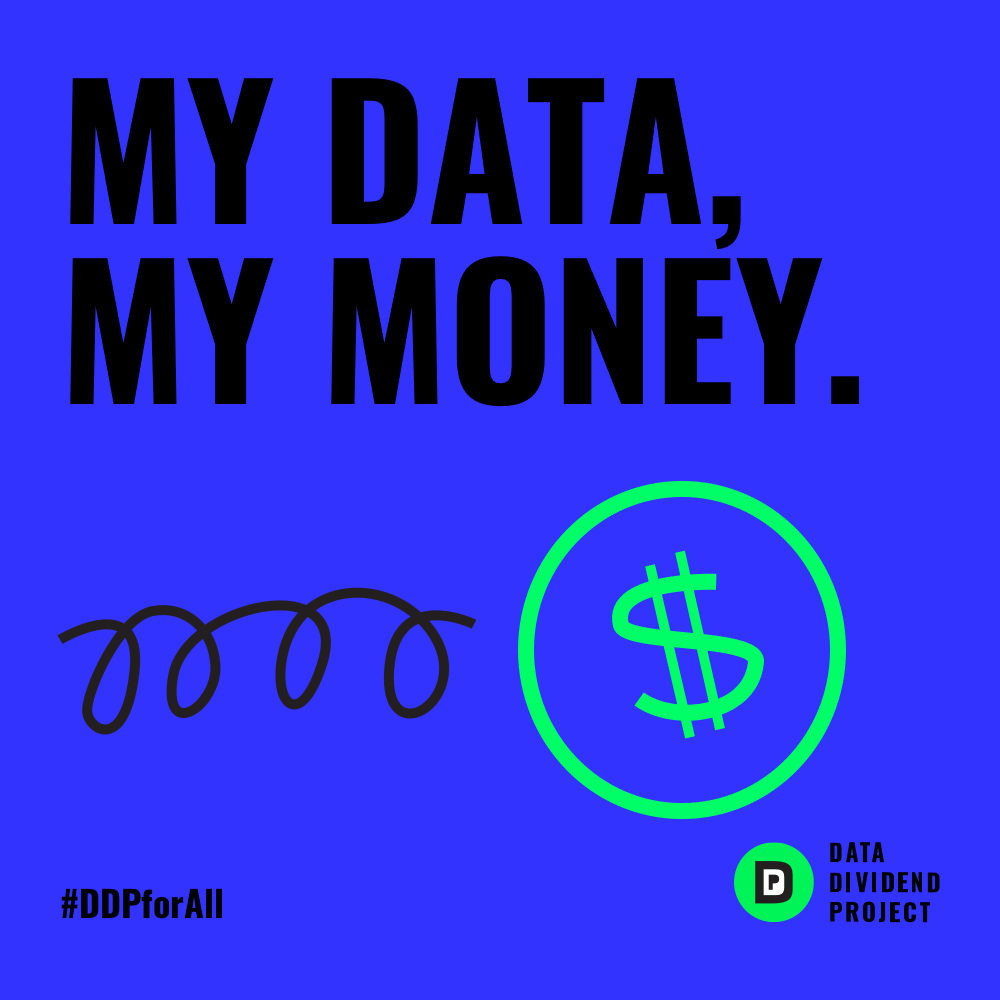What is your data worth?
$1139.33
A conservative estimate * of the lifetime value of a North American Facebook user. The value of one person’s data to Facebook. A number that has gone up every year for 9 years straight and shows no sign of stopping.
$0
Your monthly Facebook bill. Facebook has always been free!
If you don’t have to pay for it, you’re not the customer; you’re the product.
Where you go, who you socialize with, the topics you follow, the websites you visit, the places you travel, what you like and dislike. Your life and memories, a digital imprint, logged to shocking accuracy in a database alongside billions of other human beings on this planet. Your data. The information that is unique to you that exists as your digital footprint on the global system of interconnected computer networks we call the internet.
Your data is fueling the technological advancements of the 21st century.
Every time you click on something, it’s recorded. The pictures you like, the videos you watch, the articles you read, the ads you engage with are all data points that reflect some aspect of your life. Powerful algorithms are constantly scanning this data to figure out more about you. Every bit of information provides a more complete picture of your digital footprint.
Facebook. TikTok. Twitter. YouTube. Google. Instagram. These massive companies share one thing in common. You don’t pay for them directly. These companies use data to sell your attention to those that pay for it. It’s why these days you see digital ads everywhere that seem to really, really get you. The better these companies know you, the easier it is for them to show you something you might click on, and the more money they make off of you.
Terms and Conditions don’t work anymore
When it comes to installing an app, accepting updates, or using online services, it’s clear that Terms and Conditions agreements aren’t working. A Deloitte survey of 2,000 US consumers aged 18–75 showed that 91% of people accept terms of service without reading them. That percentage is even higher for 18–34 year olds — up to 97 percent.
Terms and Conditions are complex by design. These documents are drafted in legalese. They’re vague enough to cover all their bases, but they’re technically complex so you rarely know what you’re agreeing to.
We click “I Agree” and move on with our lives.
Opting into a service is opting into whatever they want to do with the data you generate. We give this data away with little thought. Data that has value.
Data brokers. The shadow industry profiting off of your personal data.
Acxiom. Equifax. Experian. Epsilon. Oracle. With virtually no oversight, these data brokers buy and sell lists of people and their profiles. These profiles are stitched together with all kinds of data: age, race, gender, height, weight, marital status, religious affiliation, political affiliation, occupation, household income, net worth, homeownership status, investment habits, product preferences, and health-related interests. Data brokers represent an industry valued at over $200 billion; they constitute approximately 4,000 companies that operate in the shadows and profit from buying and selling your personal data.
Imagine if you were constantly being followed around by strangers taking notes on your every move, even as you sit in the comfort of your own home. Thanks to data brokers, the truth is far worse.
Health insurance companies buy medical diagnoses, tests, prescriptions, socioeconomic, and “lifestyle” data about hundreds of millions of Americans. This data is collected, packaged and sold to them by data brokers. Everything is fair game. The food you buy. The clothing you recently bought. Your TV habits. Your data is used to create risk factor scores, which then determine things such as your insurance options.
You’re giving away all your data for free.
You don’t know what data is out there about you, where it goes, or who’s using it, but it must worth something if people are buying and selling it to the tune of hundreds of billions of dollars.
We tend to undervalue our data when we need to begin viewing it as a powerful asset. An asset that we have the moral rights to.
In a world where you own and control your data, you know who wants to collect your data, what they are collecting, and how it’s used. You have a say in determining the appropriate access and usage of your data. You’d be able to fix it when it’s out of date or inaccurate. You might even earn a royalty on its use.
You’d have a seat at the same table as those who collect information about you, and those who seek to use it.
It’s time to reclaim your data rights and to show companies that your data is more than just a commodity.
*The prior $2070.50 calculation assumed a quarterly churn rate of 2% and a quarterly Average Revenue Per User Per Quarter of $41.41. The LTV value drops to $1139.33 if the calculation assumes a quarterly churn rate of 3% and a $34.18 Average Revenue Per User Per Quarter, which is the Q1 2020 ARPU number for US/Canada users reported by Facebook
